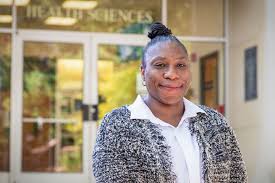Emi Lokan or Lagos Lakon Tinubu’s Federal Projects Spark Unease Over Regional Equity

Since the inception of President Bola Ahmed Tinubu’s administration, one state has clearly emerged as the biggest beneficiary of federal projects—Lagos. While no one disputes the strategic and economic importance of Lagos, many Nigerians are beginning to question the sheer volume—and value—of federal allocations being funneled into the state, raising serious concerns about fairness, equity, and national inclusion.
For example, in just the first two years of his presidency, President Tinubu has either approved or initiated the following major infrastructure projects in Lagos:
- Lagos-Calabar Coastal Highway: ₦1 trillion
- Lagos-Ibadan Expressway rehabilitation: ₦196 billion
- 7th Axial Road: $651 million (≈₦1.2 trillion)
- Rehabilitation of Murtala Muhammed International Airport: ₦712 billion
- Airport perimeter fencing and security upgrades: ₦50 billion
- Lagos-Shagamu Road project: ₦11 billion
- Lekki-Epe Service Lane construction: ₦158 billion
- Lagos-Badagry to Sokoto Superhighway: ₦1.6 trillion
- Rehabilitation of four Lagos bridges: (Cost undisclosed)
- Proposed Lagos Light Rail Loan: $2 billion (≈₦3.2 trillion)
Add to these the ongoing University of Lagos Independent Power Project, the Renewed Hope Housing City, and several other smaller federal interventions, and the numbers quickly climb into the trillions. All of this within just two years.
Meanwhile, in other regions—especially in the North and far East—concrete federal projects are either minimal or invisible. Kano State, for instance, has little more than an announced Renewed Hope City and some yet-to-be-executed approvals with no real groundwork on the ground.
This trend raises legitimate concerns:
- Is President Tinubu governing as the President of Nigeria, or the President of Lagos?
- What message does this send to citizens in other regions who also pay taxes, vote, and expect dividends of democracy?
- Is Nigeria now operating under a new federal mantra: “Emi Lokan, Lagos Lakon” (It’s my turn, it belongs to Lagos)?
Supporters of the president often justify these projects by pointing to Lagos’s profitability and position as the country’s economic nerve center. While that may be true, it ignores a vital principle of federalism—balanced development. No region becomes economically viable without significant investment. If the same kind of infrastructure spending were directed toward Kano, Enugu, Sokoto, or Akwa Ibom, they too would become high-yield economic zones over time.
Even within the South West, there’s imbalance. Other states in the zone are not seeing the kind of aggressive development Lagos is enjoying. What is playing out appears less like “South West favoritism” and more like Lagos exceptionalism.
More troubling is that appointments under Tinubu are also heavily Lagos-centric. Many key federal positions are occupied by individuals with strong political or personal ties to Lagos, sidelining not only other regions, but even Tinubu’s home region in a broader sense.
Equity, fairness, and justice should guide leadership decisions—especially in a country as diverse and historically polarized as Nigeria. Preferential treatment on this scale risks deepening divisions, breeding resentment, and fueling narratives of exclusion.
For Lagosians with a sense of national unity and justice, this shouldn’t be a matter of partisan defense or tribal loyalty. It’s a call to introspection: Are we witnessing a presidency for all Nigerians—or just for Lagos?
As we move toward 2027, these questions will only grow louder. And if the current trend continues through to 2031, historians may one day look back and ask: Was this the most regionally skewed administration in Nigeria’s democratic history?
One thing is certain—prosperity without justice is not sustainable. We must speak now, not just for today, but for the record, and for posterity.



